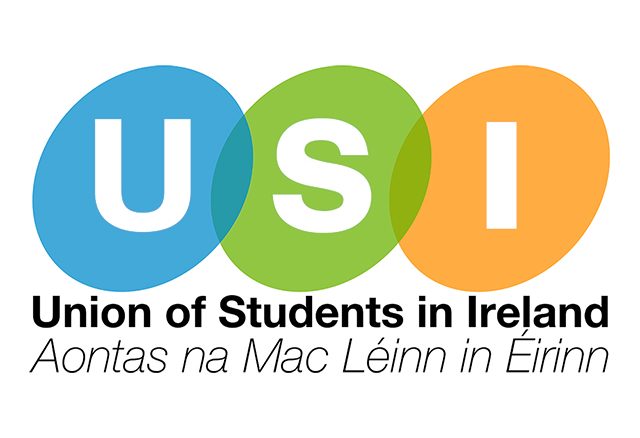
[dropcap]T[/dropcap]his week, college students across the country are experiencing their ‘new normal’ with the majority of classes taking place over Zoom calls.
A new normal in which your learning experience relies on your broadband and studying environment and money almost feels wasted on student accommodation.
During the move online, higher level institutions in Ireland decided to keep their fees the same, with a minimum of €3000 per annum – this is currently the highest university fees in the EU, despite Ireland claiming to have ‘free fees’. Outrage quickly spread among students as issues with fees, accommodation and grants are not as new as Covid-19.
The Union of Students Ireland (USI) launched the #EducationForAll campaign in hope of highlighting students who have past and present issues with the high cost of student fees and accommodation. They asked students to use the hashtag to share their experiences with things such as the SUSI grant and working during college.
Within 24 hours the campaign was trending and students across Ireland were sharing their opinions and talking about times such as when their SUSI maintenance fee, which stands at €135 a month, wasn’t enough for them to pay for accommodation each month
One student in DCU shared her personal background with fees with The College View. The undergraduate student, who wishes to remain anonymous, went abroad straight after their Leaving Cert and studied an undergraduate programme for a year.
When they returned to Ireland, they decided to start a new undergraduate degree in DCU. Upon applying, they were classes as an international student and were subjected to fees amounting to €7000.
“It doesn’t apply to everyone, but it definitely discourages people to try going abroad as an option,” they said, “It seems as though this is only encouraged if you can afford the mad fees of it all.”
Now in their second year of college, this student was able to convince DCU to lower the fees for the rest of their time in the university. They did not qualify for any supports or grants to assistant them in paying such a big student fee, forcing them to apply for a student loan they are still paying off.
“I’m just above SUSI, so I don’t qualify and couldn’t get student assistance fund either. I had to take out a loan and work part time to afford the fees and accommodation,” they said.
The USI are urging the Minister of Education and the Minister of Higher Education in the Republic of Ireland and the North of Ireland to reduce all fees in an effort to reform the current system for third level education.
As part of the #EducationForAll campaign and petition, the USI have called on the ministers to reduce fees and reform the system of third level education. The union have also listed an end to the student contribution fee of €3000, a publicly financed and regulated student accommodation strategy and a reform of student supports in their demands.
According to Dean O’Reilly, DCU’s Student Union Vice President for Welfare and Equality, “Members of the USI executive have regular meetings with Minister Simon Harris to discuss this. The USI have called for, at the minimum, a reduction of 500 euro in the student contribution fee which we hope to see in Tuesday’s upcoming budget.”
O’Reilly and his entire sabbatical team believe that college fees should be lowered, irrespective of classes moving online. He said even if the pandemic wasn’t happening we should still have fees lowered, but this is something that cannot happen without more government support.
SUSI, a government funded grant, is a fundamental system for some students, who otherwise wouldn’t be able to get through college – this was the case for O’Reilly. He believes the entire system should be looked at as it currently excludes so many people.
“Postgraduate students deserve greater financial support than what is provided by SUSI right now, repeat students shouldn’t have financial support taken away from them because they chose the wrong course their first time around, there’s so much to look at,” he said.
“USI, with DCUSU support, have raised these issues over and over again with Government Officials. We hope they start listening soon.”
Currently in DCU, students are offered a range of resources to help them, such as the laptop scheme. However, you must qualify for SUSI or a means-tested social welfare payment in order to be eligible for the scheme. While O’Reilly commends the “tremendous work” of DCU staff to support students, a broader issue needs to be resolved.
He said: “the same students that fall through the cracks of SUSI or social-welfare, for being a tenner over the threshold or whatever it may be, continue to face barriers in other areas of support. That’s not DCU’s fault. It’s a sectoral issue.”
As part of the #EducationForAll campaign many students, similar to the DCU student mentioned earlier, have to work part time throughout college in order to be able to afford their student accommodation from month to month.
O’Reilly explained that some accommodation fees have doubled, and in some cases quadrupled, in light of Covid-19 as more services like cleaning fees are included.
The DCUSU along with the USI will continue to work towards the common goal of making college more affordable for all students, by demanding a reform and improvement of the current systems in place for higher education.
Vice president O’Reilly said he wants to see a day where “the higher education sector is funded adequately [and] that students pay no more than €300 a month on their accommodation. Until then, we have work to do.”
Note: This article was reuploaded on 26/03/21 due to a fault with The College View website.
Emily Clarke
Image credit: USI


